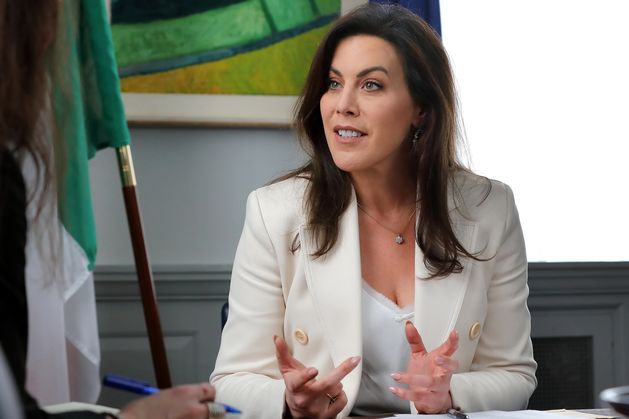Headline: Local School Capacity Issues Leave Parents Seeking Solutions
In a troubling situation, one boy’s experience exemplifies a broader issue affecting families in Longford: students with special educational needs often travel hundreds of kilometers weekly to attend distant schools. Following concerns raised about this scenario, St Christopher’s Special School recently underwent an inspection by the National Council for Special Education (NCSE). The findings revealed that the local school has the capacity to take on more students, prompting questions about accessibility and enrollment challenges for parents.
St Christopher’s Special School Under Scrutiny
St Christopher’s Special School has been a beacon for families seeking educational accommodations for children with special needs. Currently, the school enrolls 41 students but has the potential to accommodate 54, according to European Affairs Minister Jennifer Carroll MacNeill. During a recent Seanad debate, she pointed out that the school recently underwent refurbishment and holds approval for nine classes. However, while the school is permitted to operate with two rooms dedicated to arts and crafts, it’s only utilizing seven of the available nine classrooms.
“We want to ensure that children with special educational needs have local access to education,” said Fine Gael senator Micheál Carrigy, reflecting a widespread sentiment among parents and educators. Despite the reported capacity, many parents continue to express frustration over the complexity of the enrollment process at St Christopher’s.
Ongoing Enrollment Challenges
The inspections conducted by the NCSE indicated that, while the school has the necessary infrastructure, there are still constraints that prevent it from fully utilizing its capacity. "I appreciate that there may be constraints with regard to some equipment or the size of some of the equipment," noted Minister Carroll MacNeill, stressing the importance of finding solutions to these issues.
Despite the apparent space for growth, parents have shared ongoing challenges in securing placements for their children. Senator Carrigy has previously highlighted these critical concerns in the Seanad and voiced the necessity for local education opportunities: "I would always advocate for children to get access to education in their own community and their local school."
The Role of the NCSE and the Department of Education
The NCSE is tasked with overseeing special education provision in Ireland. While the agency declined to comment on individual cases, it maintains that it can instruct schools to admit children as per the provisions outlined in the Education Act. "The NCSE and the Department of Education prefer to work collaboratively at all times with schools to provide sufficient capacity for children with special educational needs," stated a spokeswoman for the Department of Education.
This collaboration is critical for ensuring that children can access necessary educational resources within their communities. However, the challenge remains, and many parents are left wondering why their local special school seems unable to accept more students despite having the capacity.
Legislative Changes on the Horizon
In response to these systemic challenges, Senator Carrigy proposed new legislation designed to shape future educational frameworks for individuals with autism. He asserts that it is vital for the next government to prioritize such measures and make it a focus in their upcoming election manifestos.
"The Autism Action and Oversight Bill aims to provide every child, regardless of their neurodiversity, the equal opportunity to reach their full potential," Carrigy explained. He emphasized the notion that education should be accessible in local communities, ensuring parents have clarity over the support available for their children in future.
The Path Forward
The unfolding situation at St Christopher’s Special School resonates deeply with many families in Longford and beyond. As efforts continue to bolster the capacity of local educational institutions, the community is left to navigate the complexities of access to education for those with special needs.
Engagement and advocacy from parents and political representatives alike will play a crucial role in shaping future policies and ensuring that children receive the educational support they deserve.
As discussions regarding accessibility and educational rights continue, it’s essential we highlight these stories and foster environments where every child’s heartbeat is heard.
We invite our readers to share their opinions in the comments below and stay connected as we cover further developments surrounding educational access for children with special needs in our communities.


